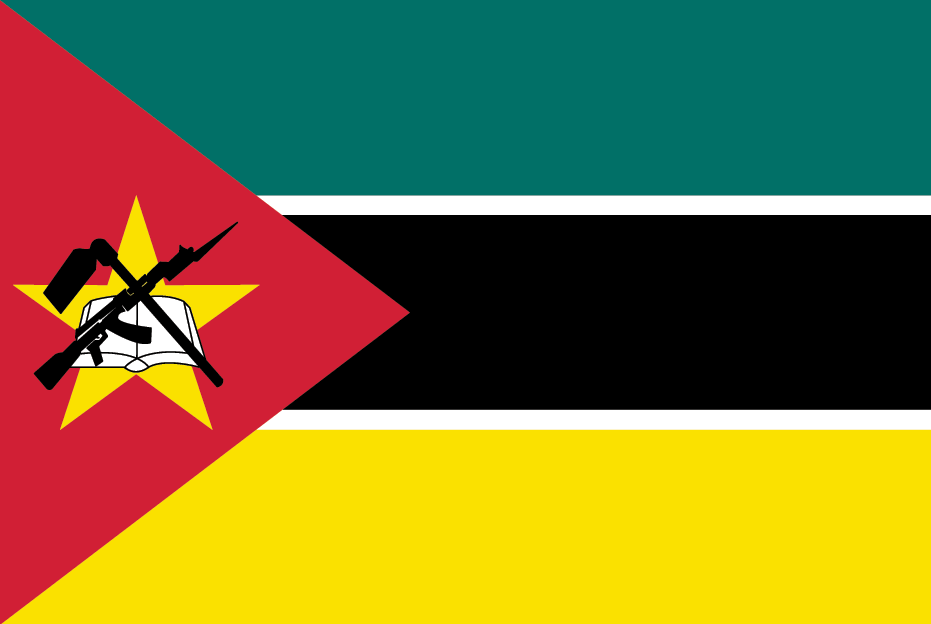
Sustainability Efforts
Country: Mozambique
Explore sustainability efforts in Mozambique. The United States Environmental Protection Agency (“EPA”) said it well when they state:
“Sustainability is based on a simple principle: Everything that we need for our survival and well-being depends, either directly or indirectly, on our natural environment. To pursue sustainability is to create and maintain the conditions under which humans and nature can exist in productive harmony to support present and future generations.”
About Mozambique
Mozambique, located in southeastern Africa, is a country known for its stunning coastline, diverse wildlife, and vibrant cultural heritage. It offers pristine beaches, including those in the Bazaruto Archipelago, and opportunities for snorkeling and diving in its coral reefs. Mozambique’s national parks, such as Gorongosa and Niassa, are home to elephants, lions, and other wildlife. The country’s blend of African, Portuguese, and Arab influences is evident in its cuisine, music, and architecture. Mozambique’s rich history includes colonial heritage and a resilient spirit in the face of challenges. With its warm climate and friendly locals, Mozambique welcomes visitors seeking a unique African experience filled with natural beauty and cultural exploration. Sustainability efforts in Mozambique will enhance the country’s future.
Sustainability Efforts
Toggle each button below to “open” and “close” the presented data.

The government of Mozambique has implemented various poverty reduction programs, focusing on agriculture, infrastructure development, and social protection. As of 2018, the poverty rate in Mozambique was around 52.1%, according to the World Bank.

Mozambique has been working on improving food security through programs that promote agricultural productivity, enhance access to markets, and support smallholder farmers. In 2018, the prevalence of undernourishment in Mozambique was estimated to be around 29.4%, according to the Food and Agriculture Organization (FAO).

Mozambique has made progress in improving healthcare services, including the expansion of healthcare facilities, training healthcare workers, and increasing access to essential medicines. The infant mortality rate in Mozambique decreased from 97.7 deaths per 1,000 live births in 2000 to 64.6 deaths per 1,000 live births in 2019, according to the World Bank.

Mozambique has prioritized education and has been working on increasing access to quality education, especially for girls and children in rural areas. The net enrollment rate for primary education in Mozambique was around 77.2% for boys and 75.2% for girls in 2019, according to UNESCO.

Mozambique has taken steps to promote gender equality and women's empowerment, including legal reforms, policies, and programs focused on gender-based violence, economic empowerment, and political participation. Women's representation in the Mozambican parliament increased from 35% in 2014 to 39% in 2019, according to the Inter-Parliamentary Union.

Mozambique has been working on improving access to clean water and sanitation facilities through infrastructure development, hygiene promotion, and sustainable management of water resources. In 2017, approximately 47% of the population in Mozambique had access to improved drinking water sources, and around 25% had access to improved sanitation facilities, according to UNICEF.

Mozambique has been developing its renewable energy sector, particularly hydroelectric power and solar energy, to improve access to affordable and clean energy sources.As of 2020, renewable energy accounted for approximately 83% of Mozambique's total installed capacity, according to the International Renewable Energy Agency.

Mozambique has been implementing policies to stimulate economic growth, including investment in infrastructure, diversification of the economy, and attracting foreign direct investment. The GDP growth rate in Mozambique averaged around 3.7% between 2016 and 2020, according to the World Bank.

Mozambique is working on fostering innovation and industrial development by implementing policies and programs that promote research and development, entrepreneurship, and technological advancement. Statistics specifically related to industry innovation in Mozambique are limited.

Mozambique has been implementing social protection programs, promoting inclusive economic growth, and addressing discrimination to reduce inequalities across various sectors. In 2018, the Gini coefficient in Mozambique, which measures income inequality, was estimated to be around 0.46, according to the World Bank.

Mozambique has been focusing on sustainable urban planning, improving infrastructure, and promoting affordable housing to create sustainable cities and communities.

Mozambique has been promoting sustainable consumption and production practices through awareness campaigns, capacity building, and policy frameworks.

Mozambique is taking steps to address climate change by implementing policies and programs focused on renewable energy, climate resilience, and mitigation measures. As of 2020, Mozambique had submitted its Nationally Determined Contributions (NDCs) to the United Nations Framework Convention on Climate Change (UNFCCC), outlining its commitments to reduce greenhouse gas emissions.

Mozambique is working on conserving its aquatic environment, including its oceans, rivers, and freshwater ecosystems, through measures such as marine protected areas, sustainable fishing practices, and pollution control.

Mozambique is engaged in efforts to preserve its natural environment, including biodiversity conservation, protected areas management, and sustainable land use practices. Mozambique is home to several national parks and reserves, such as Gorongosa National Park, which are important for conservation efforts.

Mozambique has been focusing on strengthening its peace and justice institutions, including the judiciary, law enforcement agencies, and conflict resolution mechanisms. Efforts have been made to promote accountability, human rights, and access to justice for all citizens.

Mozambique recognizes the importance of partnerships and collaboration to achieve the Sustainable Development Goals (SDGs). It has been working with international organizations, donor agencies, and civil society to mobilize resources and expertise. Various partnerships and initiatives are in place to support Mozambique's sustainable development agenda.



